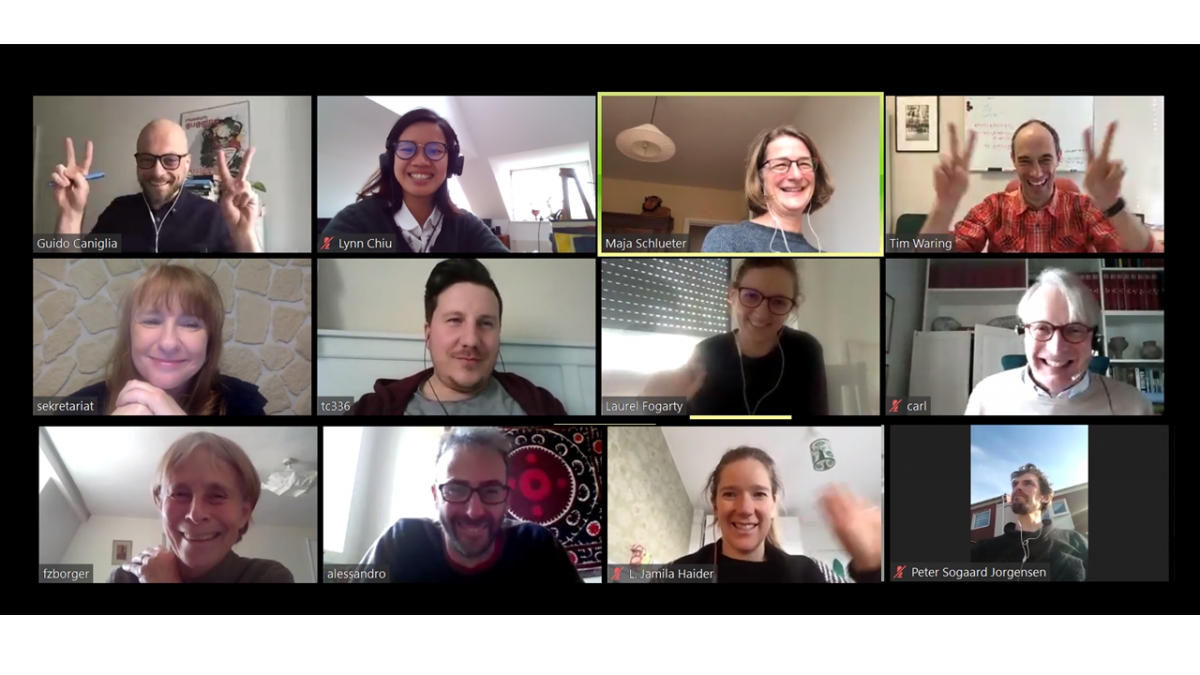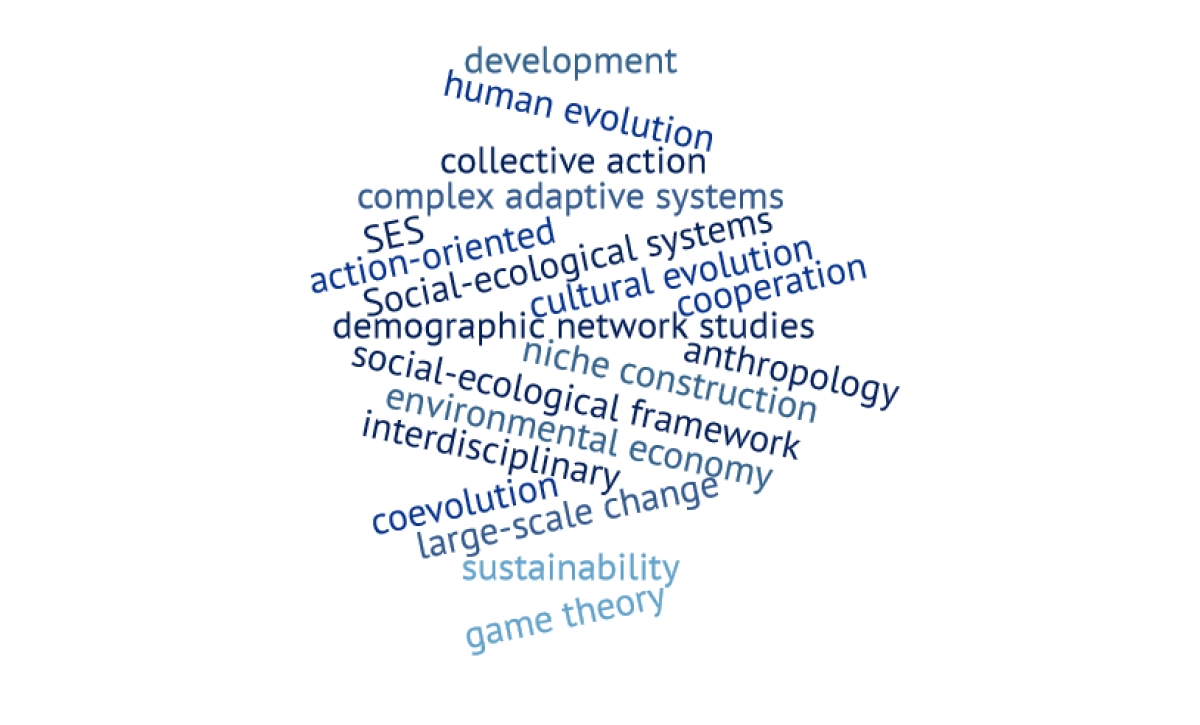News Details

Officially kicking off the KLI Working Group "Evolutionary Theory for Social-Ecological Change," co-led by Tim Waring @UMaine & Maja Schlüter @sthlmresilience! The group seeks to bridge evo theory with Social-Ecological Systems research to address realworld #sustainability issues pic.twitter.com/mdo4VeZ5N9— KLI: A Home to Theory that Matters (@KLIAustria) March 26, 2020
Timothy Waring (Mitchell Center, University of Maine) and Maja Schlüter (Stockholm Resilience Center, Stockholm University) virtually kicked off a two-year KLI working group to understand, explore, and implement “Evolutionary Theories for Social-Ecological Change.” This working group will explore the value of evolutionary mechanisms for explaining complex social-ecological change, with a focus on developing sustainability theory to address real world problems and improve governance and transformation of social-ecological systems (SES).
The virtual kick-off meeting of the two-year working group took place in the midst of the 2020 COVID-19 pandemic, on March 25. This week, the participants were supposed to congregate at the KLI institute at Klosterneuburg, Austria, for a multi-day workshop. The workshop itself has now been rescheduled for November this year (fingers crossed), but we still met today, zooming in from our respective homes, to introduce ourselves and propose outcomes of the group.
To define a collective focus on evolutionary approaches to social-ecological change, Tim and Maja invited a diverse range of experts to fit together an interdisciplinary program that can bridge the theoretical and empirical work in both areas.
The Theory Group
|
Collaborator |
Expertise |
|
Monique Borgerhoff-Mulder,Max Planck Institute for Evolutionary Anthropology |
Behavioral ecology, human evolution, conservation (BOTH) |
|
Thomas Currie, University of Exeter |
Cultural evolution, social complexity (EVOL) |
|
Carl Folke, Stockholm Resilience Center, Beijer Institute, RSAS |
SES, resilience, sustainability (SES) |
|
Laurel Fogarty, Max Planck for Evolutionary Anthropology, Leipzig |
Culture, social learning, mathematical modeling, demography (EVOL) |
|
Jamila Haider, Stockholm Resilience Center |
SES, development, co-evolution (SES) |
|
Peter Jørgensen, Beijer Institute of Ecological Economics |
Macro-ecology, evolutionary biology, sustainability (SES) |
|
Alessandro Tavoni, University of Bologna |
Evolutionary game theory, SES, cooperation, economics (BOTH) |
Both human evolutionary theory and SES share common interests in the dynamics and complex causes of human-environment interactions. On the one hand, bringing in evolutionary theorizing can help provide a unifying framework to find common patterns across diverse cases. On the other, SES work on the place of humans in biospheres offer concrete, empirical cases and points of connection with action-oriented interventions. Some approaches are deeply empirical while others are abstract and theoretical. These diverse approaches can all gain from navigating their respective languages, case studies, as well as conceptual and modeling tools to develop collaborative work that address pressing real-world problems, aka “theory that matters.”
The hope for accelerating interdisciplinary integration also comes with welcomed creative tensions. How can we recognize which theories to adopt and use? How can we create true novelty and develop theoretical frameworks and empirical approaches that are actually useful and matter? How can we facilitate an organic, bottom-up emergent collaboration? How can we be reflexive in the process?
The kick-off meeting program
- 10 min - Welcome (Tim)
- Guido - KLI welcome (1min)
- Maja - group purpose
- Tim - participant fit and selection
- 15 min - Short introductions: general motivations (Maja)
- 5 min - 1-on-1 paper discussion plan (Tim)
- 15 min - What would you like to achieve in this working group? (Guido)
- Thank you, sign off
As the working group is a shared-exploration and learning process between experts in evolutionary theory and social-ecological systems research, Tim, Maja, and Guido proposed a small-group“break out” format for the coming month. The participants have been split into groups of two. They will pick at least one paper from a third scholar’s recommended readings to critically discuss and draw connections. The goal is to recognize how theories and concepts are used in different areas. Where do the connections lie? Participants will take notes or record their discussions. We will slowly develop bottom-up methods to integrate and ripen these discussions when we meet in person in November!

keywords mentioned during the round of introductions
This working group is a flagship project of the KLI as it continues to contribute to sustainability topics with its strong tradition in conceptual, theoretical, and philosophical approaches to evolutionary and cognitive science. We hope that the enabling features of the institute and the values it embodies can transfer to the virtual formats as we learn how to “dance with the system” instead of trying to place it under hard control.
Related reads:
Lynn Chiu, KLI Communications Officer

